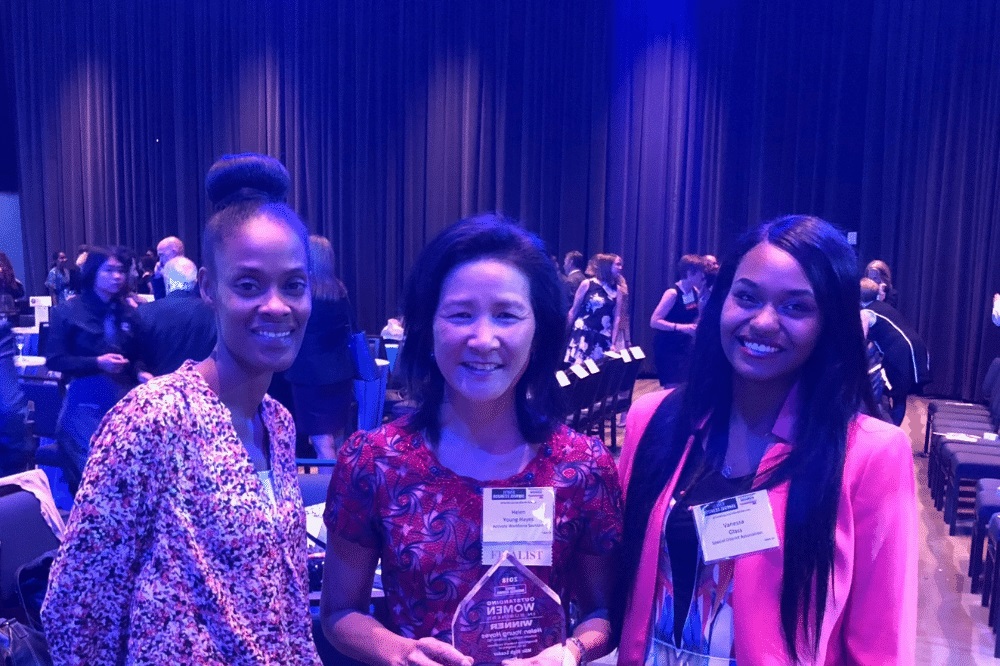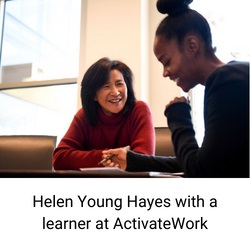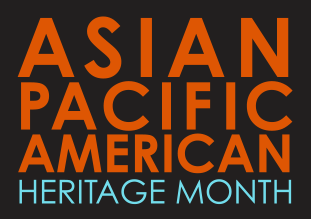
Understanding Intersectionality and Supporting Asian Americans
A Nonprofit Leader Celebrates Her Own Intersections and Works to Eliminate Inequities Experience By Others
Intersectionality is a term used by activists, scholars, and diversity experts. But what does it mean?
 According to the Oxford English Dictionary, intersectionality is a sociological term meaning “The interconnected nature of social categorizations such as race, class, and gender, regarded as creating overlapping and interdependent systems of discrimination or disadvantage.”
According to the Oxford English Dictionary, intersectionality is a sociological term meaning “The interconnected nature of social categorizations such as race, class, and gender, regarded as creating overlapping and interdependent systems of discrimination or disadvantage.”
The original term was conceived in 1989 by Kimberlé Crenshaw, a civil rights activist and legal scholar. In the University of Chicago Legal Forum, Crenshaw described the multiplicative nature of intersectionality in which women’s rights and anti-racist policies can unintentionally exclude black women who experience discrimination unique to them.
I’ve been the only woman and the only person of color in numerous settings—corporate leadership, investment circles, philanthropic ventures, and advisory boards. I was also often the only first-generation Chinese American working mom in the room. Growing up, I downplayed the intersectionality in my life. But it was ever-present. During my years on Wall Street, I was often mistaken for my male colleagues’ assistant. I wasn’t invited to play poker or smoke cigars. I was even openly mocked by a previously cordial CEO when he realized, face to face, that I am not white. Now I both celebrate my own intersectionality and work to eliminate the inequity experienced by others.
Overlapping identities and experiences
People’s overlapping identities and experiences can compound their experience of racism, prejudice, inequity—and violence. The intersectionality of gender and race for Asian American women is starkly illustrated in the unprecedented explosion of hate crimes against the Asian American Pacific Islander (AAPI) community since the March 2021 murders of six Asian American women in Atlanta. While overall, AAPI hate crimes increased by 339% in 2021, Asian American women are more than twice as likely to be victimized as Asian American men. Recently I was in New York City; on a sunny afternoon, seven Asian American women were attacked in a spree of violence just blocks away from my hotel.
Sharp differences among Asian Americans
Broadly viewed as the “model minority,” stereotypical Asian Americans are regarded as highly educated, successful, conformist, and culturally monolithic. In fact, the AAPI community experiences the greatest—and fastest growing—income inequity of all ethnicities. Poverty rates among recently immigrated, less educated and Pacific Islanders place these communities among the poorest in America.
Similar contrasts among Asian women reveal that Pacific Islander and South Asian women, predominantly newer Americans working in service sector jobs, earn less than two-thirds of women of North Asian descent.
ActivateWork
I founded Denver-based ActivateWork in 2016 to help individuals achieve economic freedom through the dignity of work. We work to uplift all underserved communities, including Asian Americans experiencing financial hardship and those whom the government has historically underserved. Believing that talent is evenly distributed but opportunities are not, ActivateWork stands as a bridge to higher-wage careers in technology through credentialing and training. Twenty percent of our IT trainees are immigrants and refugees. Several have lived in Asian refugee camps. And many of our women graduates hail from Asian cultures where women have historically been under-represented in the workforce.
Sunita Shakya: Learner of ActivateWork
Meet Sunita Shakya, a 39-year-old Nepalese female residing in Denver with two children and a husband; she is a current learner in the desktop security cohort with ActivateWork. She immigrated from Nepal 11 years ago, is a mother, wife, learner-student, and speaks two languages, English and Gurkha (the native language of Nepal).
She earned a bachelor’s degree in mathematics and worked as a middle-school teacher for five years in Nepal. She continued her education in Colorado. But she took a break from school to raise her children. Now she’s ready and eager to return to contribute to her household income.
“I want to join the workforce because I want to support my family, and working is my passion,” she said.
When Shakya finishes her tuition-free training under ActivateWork, a designated coach will guide her through the job search, polish her resume and learn all the tips associated with interviewing for a job as a QA analyst or QA tester. The assigned coach will stay with her a year after her IT training to ensure she is on the pathway to a career in technology.
Colorado Inclusive Economy Movement
In April 2020, during the depths of the COVID pandemic, I was inspired to launch the Colorado Inclusive Economy Movement.
Having studied past economic shocks, I knew that this pandemic would hit people of color first and hardest, and that they would recover slowest, if ever. To change the narrative, we needed a movement comprised of CEOs and other community leaders to unite and build a Colorado that works for all.
With a powerful team of volunteers, we designed a comprehensive plan of action and accountability toward becoming the nation’s most inclusive economy. We have our work cut out for us. Colorado ranks 12th out of 50 states for overall prosperity but ranks 37th in economic racial inclusivity. We are 105 CEOs today and will be 140 strong in August. We commit to creating change: change in ourselves, change for others, and change in our recruiting, hiring, retention, and promotion practices.
Understanding intersectionality and supporting Asian Americans
I invite my fellow community leaders to support Asian Americans through a genuine commitment to personal and workplace change. Below, I share some suggestions to become a DEI champion. Asian American and Pacific Islander Heritage Month is great time to start:

- Get curious. Educate yourself about why DEI is important. Learn about historical and current systems and processes that contribute to persistent inequity, prejudice, and racism. (The Colorado Inclusive Toolkit is a valuable diversity resource including longitudinal overviews like How We Got Here: Historical Context of Racism. MIT Press has published a series of Articles for Understanding: Systemic Racism and Social Justice.)
- Get close. About 40% of white people and 25% of people of color in America socialize with only people of the same race. Welcome and embrace new friendships. Proximity dissipates prejudice.
- Get inclusive. Invite everyone, especially individuals from under-represented communities, to have an active voice. Understand that many Asian Americans come from cultures that esteem humility and might not readily share their accomplishments or opinions.
- Get diverse. Learn new, equitable ways of recruiting, hiring, retaining, and promoting people of color. You won’t get different results with the same old HR practices. (See CIE Toolkit for tips.)
- Get involved. Mentors and coaches can be valuable allies to help diverse employees understand the unspoken norms and become advocates for younger generations of employees.
It’s a step in the right direction — embracing the all-encompassing identities of Asian American women. As we celebrate May as Asian American and Pacific Islander Heritage Month, let’s step up and embrace our mothers, our sisters, our daughters, our girlfriends, neighbors, and colleagues who are Asian American women by uplifting them, recognizing their work, crediting them for all their perseverance, and encouraging them to continue as leaders, supporters, and driving forces of our community.
Helen Young Hayes is the founder/CEO of ActivateWork and a founding leader for Colorado Inclusive Economy.

